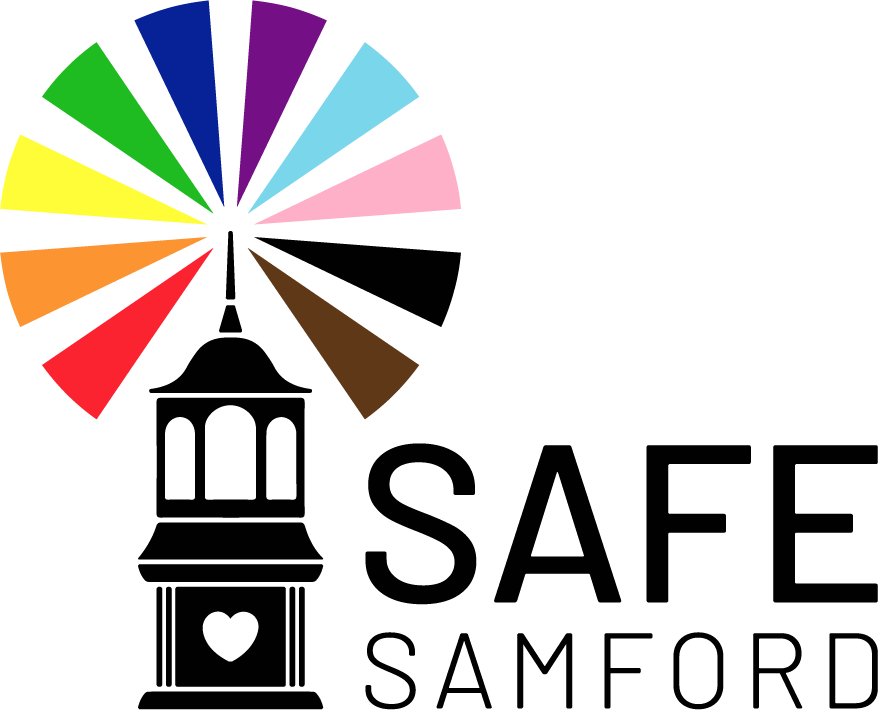"They knew that being openly gay and fully included in the Samford community was just out of the question"
Dear Dr. Westmoreland,
I received much from Samford, and for many years I attempted to give back. Mindful of the important role Samford played in my own educational journey as a first-generation college student, I served as an admissions counselor and later helped bring the Fellows Program to life. Over time, though, I became increasingly aware that I no longer “fit” at Samford. It wasn’t just that I leaned too far to the left politically.
The longer I spent at Samford, the less faith I had.
There are many reasons why my time at Samford led to a crisis of faith -- among them was the university’s response to homosexuality. I was raised in fairly conservative churches, but I also had an insatiable desire to learn, so I came to Samford with many questions. That’s why I loved Biblical Perspectives. My professor, a local pastor, welcomed and encouraged my questions. No matter what I asked, he responded thoughtfully and with great care. He was unwavering in his faith in Christ. At the same time, he had an appropriate sense of humility about his own capacity to fully comprehend the mind of God, so he never hesitated to consider other perspectives or interpretations or to admit that he was wrestling with an answer himself.
One of the topics that I began to wrestle with as an undergrad was homosexuality. As a psychology major, I read the twin studies showing a higher concordance rate of homosexuality in identical vs. fraternal twins. I was unsure how to reconcile this new knowledge with messages I’d heard in the pulpit. When I stopped by a mentor’s office to ask her perspective on homosexuality, I quickly realized that I had stumbled upon a taboo topic for Samford’s campus. A staff member without tenure protections, she was hesitant to speak candidly (I came to understand that feeling years later as a Samford employee). Ultimately, she agreed to talk with me off the record and shared a copy of Is the Homosexual My Neighbor: A Positive Christian Response. It was the first time I realized there were Christians who saw homosexuality as compatible with Christianity. That experience gave me hope that I could keep faith even as I questioned.
Sadly, the longer I stayed at Samford, the less I felt it was a place where questioning Christians were welcomed and appreciated. It began to feel like a place where there was one dominant model of Christianity. And, to be honest, it wasn’t a very attractive one. I sat in multiple meetings with male colleagues who joked about leaving a “Gay Protection Seat” between them. At no point did any superior ever correct this behavior. Looking back, I’m truly embarrassed and remorseful that I didn’t speak up on these occasions and others in which I heard colleagues make off-hand remarks about “gays” and “queers.” (And, of course, the LGBTQ community was only one example of an outsider group at Samford. Comments made about people of color and religious minorities were similarly uncharitable.)
As a staff member with a reputation for leaning left (or at least left of Samford), I soon found myself in the position of having students knock on the door, ask to close it behind them, and tearfully confess being gay. Uniformly, their experiences were sad ones. They were receiving no support from family, friends, and spiritual advisors. At least one was forced by parents to attend conversion therapy and never really came back from that experience as a healthy and whole person. Being gay was a source of shame, a major stressor often co-mingled with depression. They knew that being openly gay and fully included in the Samford community was just out of the question.
I watched students (some LGBTQ, some allies, and some just questioning Christians generally) abandon faith. And, somewhere along the way, I realized that I couldn’t actually affirm my own faith. To do so would have been untruthful. Faith in Christ, in my mind, had become entangled with the version of Christianity I was encountering on Samford’s campus -- one in which there was a single dominant viewpoint and others were dismissed or silenced.
And here we are more than five years later, and Samford has yet again dismissed voices that don’t adhere to the dominant paradigm. I now understand that Christianity is much more complex than the version I encountered at Samford. I belong to the Episcopal Church, which declared decades ago that “homosexual persons are children of God who have a full and equal claim with all other persons upon the love, acceptance, and pastoral concern and care of the Church” and has since put feet to that conviction by welcoming gay ministers and families into the church. I know many friends who are from Baptist, United Methodist, Catholic, and all manner of other Christian communities that welcome and affirm gay members.
And yet at Samford, students are denied even the opportunity to form a group focused on togetherness, welcoming, and care. Students continue to conceal parts of themselves for fear of being ostracized. Some battle depression and anxiety. Others contemplate suicide. I suspect many leave the church entirely.
It doesn’t have to be this way. Samford could take the same position my BP teacher did years ago -- one that is grounded in a sense of humility and a constant openness to learning something new about God and his work in the world. Samford could formally recognize that Christians disagree about homosexuality and welcome all perspectives. Samford could provide a space for students simply to be, a group that would offer inclusion and welcome to all of God’s children. In doing so, I believe Samford would live up to its claim of being “For God. For learning. Forever.”
Ashley Floyd Kuntz, PhD
Class of 2004
